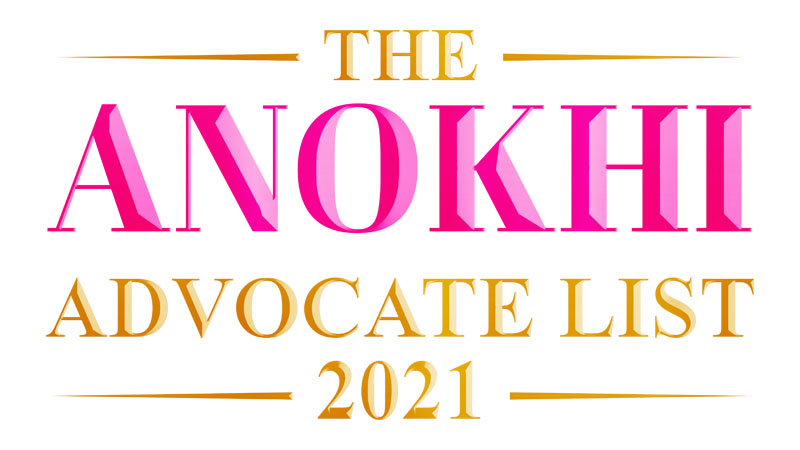Sunaina Sinha is the Global Head of Private Capital Advisory at Raymond James. Sunaina founded Cebile Capital, a placement agent and secondaries advisor that was acquired by Raymond James Financial, a Fortune 500, NYSE-listed bank in 2021. Under her leadership, Raymond James | Cebile Capital has quickly become one of the leading advisors in private equity and real assets. Raymond James | Cebile Capital has executed fundraises for leading private equity funds and executed on secondaries transactions for GPs and LPs alike, including single and multi-asset continuation vehicles, strip sales, preferred equity and NAV financings. Sunaina is also a prolific angel investor and Non-Executive Director. She served as Chairman of the Board of Mindful Chef (now Nestle), and Chairman of the Board of Barrecore (now United Fitness Brands). She currently serves on the Boards of SFC Energy AG and Grana LLC. Sunaina has also been a Guest Lecturer at Stanford University in masters level courses in the School of Engineering and serves on Stanford University’s LEAD Council. She has written and published case studies for the Stanford Technology Ventures Program in the Stanford School of Engineering. Sunaina is a frequent contributor on CNBC Squawk Box and is often quoted in the media on market insights and private markets capital advisory. She has won numerous awards and accolades for entrepreneurship and leadership, and is passionate about diversity and inclusion in the financial services industry. Sunaina obtained a BS in Management Science and Engineering and an MS in Chemical Engineering, both from Stanford University where she was also a Mayfield Fellow. Sunaina has an MBA from Harvard Business School.
Raj Girn: Welcome to The ANOKHI UNCENSORED Show folks, I’m thrilled to have Sunaina Sinha, the founder of Cebile Capital, on the show today as a South Asian woman. Sunaina is a rare breed in the private equity space, which is even more impressive when you note that her core team is made up of women from diverse ethnic backgrounds. When she actually founded and curated the company, she took the company through an unprecedented acquisition with private equity firm Raymond James and is now forging an even bigger, groundbreaking path than ever before as a woman of diverse representation in the world of finance. Thank you so much for agreeing to be a part of the The ANOKHI ADVOCATE List 2021, so. I’m pleased to share your advocacy journey for women in business. To commemorate the 19th anniversary of the ANOKHI brand, congratulations and welcome.
Sunaina Sinha: Thank you so much for honoring me today, and I am very grateful to be here and look forward to sharing my journey with you all further.
RG: So, so excited about this. So I’m going to just jump in. Instantly my first question for you is and something I’m very curious to know your personal advocacy philosophy. Can you share a bit about this first?
SS: My personal advocacy philosophy is to be the change you wish to see in the world today. Mahatma Gandhi said these words, and they could never be truer in today’s day and age where there’s a lot of talk, but unfortunately action often lags. I have tried to be that change in my industry where you can’t change the whole world, but you can change the space that you inhabit in this world today. I’ve tried to do that by making sure that I always led a diverse group of individuals at my firm where the debates of private equity, female and ethnic diverse talent sub five percent or sub seven percent in certain cases. We were always more than 50 percent women and minorities, and I’m very proud of that track record and intend to maintain it. In addition to that, it’s really important that you be that change in small ways, in the ways no one talks about later. But you know that when you had the choice with working with an all female team to do your taxes versus one, that was not that you made those small positive decisions in the right direction. And that is my philosophy, and I try to espouse it as much as I can to people around. We say talk is wonderful. Let’s see it in action.
RG: Absolutely. So why is advocating for women in business so important to you personally?
SS: Quite simply, women make up more than half the population. You have to have a community around you in the workplace that reflects the world in which we inhabit. And we do business in the world that we inhabit today, which is made up of half of women and that includes half the consumers of a business will be women that have the talent. Forces should be women to reflect what the consumers look like. I’m a huge believer that as long as you have diversity and diversity of all types seen and unseen diversity of backgrounds, diversity of gender, color and more, you will be able to avoid groupthink and get the better outcomes as a result of having that diversity on your table around you. I found that to be true throughout my career, and really, that’s why having women at the table is so important. You get that perspective, you get the ability to make sure you’re building the communities around you because when women working up empowered, you get stronger family structures you get from the community structures. And quite frankly, how do you operate in a world in an all male environment when the world around you is 50 percent women? I still don’t get.
RG: You know, it probably begs to so much of the institutionalization of a lot of the traditional expected norms of many years ago, which is something that people like you are really stepping forward and changing the narrative on. So I want to ask you this today, now because we all have something that we advocate for. I’m curious, what challenges have you had to overcome when it came to voicing your support for championing women in business?
SS: There have been a number of challenges along the way. It is not easy being not just a woman, but a minority one from an ethnic background, let alone one that looks petite and young every time she gets on a Zoom call. It is a given what I hear back from the market, and the challenges have been that perceptions die hard in the early years. People often wondered how serious I was about this business, and people often asked what was motivating me to build something from scratch in such an industry. And the only way to get over those objections was, again, action and track record. Just staying in the game, putting points on the board quarter after quarter that became year after year. And soon enough, someone noticed and people started to notice and came to us and said a vessel was having to go to them so that it was that challenge. But there was another challenge. And then the challenge was while our clients were motivated because of the zeitgeist changing around them to become more diverse within their own firms. No one was forcing them to be diverse when they hired outside advisers like ourselves, right? No one and what made them do that? And so that was another hurdle to jump that lesson. You don’t hire us because we’re diverse.
Hire us because we’re really good. And oh, by the way, we bring multiple perspectives because of our diversity. So putting an ROI case to the diversity was really important. And then the final challenge, honestly, was that we were always competing with big banks and big behemoths in our space. We were almost certainly always the David to those Goliath, and we had to carve out a niche for ourselves. And that diversity you no diversity. That was a huge challenge of being an entrepreneur in business, and that was double down difficult because of some of the issues we’ve just outlined. And that takes sheer perseverance and grit and certainly was not easy a day in, day out.

RG: So as a South Asian woman, this kind of begs a question from my perspective in this field that is so dominated by men. Was there ever a moment when you felt ‘Am I actually supposed to be doing this here?’ Was there ever a kind of a second guess question for you because, you know, that’s often times something that a lot of women, especially women from my background grapple with, ‘do I want to take this on, or do I just take a road that is more traveled?’.
SS: It’s such a good question, I have women approach me all the time and they are suffering from the imposter syndrome, which is what you’re describing. I do. I belong. Am I good enough? Should I then be at this table if this is not really where I belong and if I’m not good enough? Shouldn’t there be an easier path for me? A very common occurrence, but especially with women and women and minorities. The ultimate question is it happens. It’s common to get those feeling, especially when you’re leveling up a lot. Trust that the universe has a journey and a path for you that you wouldn’t be at that table unless there was one of two things happening. Number one, you were going to learn something from this experience that was going to teach you something invaluable about yourself and about the world around you. Or number two, you were there to teach someone else the same thing.
And I always remember that. What is this moment here to teach me? Either it’s here to teach me something or I’m here to teach someone around me something because of that journey, trusting that that greater faith trust in the universe, trust in God. Whatever your spiritual belief, that’s the time to dig into it. That’s why you build it in your childhood and adult life that you have the ability to tap into that deeper place when moments like that exist.
RG: Absolutely. And how do you feel that translates over? Transitioning and changing the narrative for generations to come because it has to start somewhere and someone needs to kind of walk that path less walked on like you have. You know, there’s a bigger picture here. There’s a bigger advocacy here at play. What are your comments there?
SS: Yes, you have to be standing on the shoulders of giants. But then you have to become a giant so others could stand on your shoulders. My big advice for future generations is that now more than ever before in history, you have role models, you have people who’ve done it before, almost in every industry. There is that example. It may be one starfish or one unicorn, but it exists now. So now lean on that, the future generation is almost out of excuses now. Yes, it’s it’s difficult. We all know that it’s difficult, but they are case studies. They are examples that come before you that you could lean on to pivot to your path. And so do that, lean on them and know that this psossible and we want to see more of you take that journey, whether that’s into entrepreneurship, whether that’s into leadership in organizations, whether that’s quite frankly something that has not been done or thought of as an organization before. But because others have paved ways and done so successfully, you can too. I am really here to tell the future generation. You’ve got the case studies now. You’ve got the samples ahead of you. So use that to do your own pivot and to catapult above all of us to make your next pop.
RG: Hear! Hear! So then why do you believe it’s so important for people to incorporate a sense of advocacy for anyone that doesn’t quite still get it, especially into kind of your life? On some level, it could be personal, professional, spiritual, all of the above. What are your thoughts around that that you’d like to share?
SS: There is plenty of research for those who doubt it. There’s plenty of research that shows that a purpose-driven life is a happier life. It’s a more meaningful life, and it’s certainly a life where you have more impact and the way to have more impact, and a more purpose-driven life is to find out what is your ‘why’. Why do you get up in the morning? Why do you do what you do as grueling as it is and how thankless it might be on seven days? It’s because you are advocating for some things that advocacy is your why it’s your North Star, it’s your compass on the hard days and difficult evenings. So that’s why advocacy is so important to all human beings, but especially to women and minorities, because you need a reason on those tough days to get up and go and pave the way for future generations to come.
RG: Let’s talk about how important advocacy has been in this last year, specifically Sunaina as you know, we’re walking out and starting to experience physical life more than we have the previous year. We’ve seen that the narrative of identity has been so present due to social media amplification that has spotlighted diversity. What have you seen that has stood out for you that you feel is changing to meet people where they’re at, rather than pushing institutionalized agendas that condition us into preconceived ideologies that don’t align with individualism?
SS: I think that the Zoom world we now inhabit has done a few things. It’s broken barriers that can often have been set up because of the institutional ways of doing business for the last 100 years, I’d be in the office going and hitting the road and meeting people in person. Now I’m not saying that we do away with that. It’s really important to go out there and feel someone’s energy face to face. But the Zoom world has lowered some of those barriers to entry, and that’s barriers to access, and that’s been beneficial to institutionalizing some of the practices that have happened for decades. So that’s point number one. The second part of the puzzle is that we have the ability to do more across geographies and across talent pools that de-institutionalizes the constructs that we lived in. I live in New York, and so I go to my base in New York and I come back home and maybe I go on the road a few times a month, but that’s about it. Today we can work with people from all over the world. And so the impact we have on human beings above us, below us at our level is that much deeper. And the third thing I would say is that because of the zeitgeist of our times because of the pandemic, because of the issues and the focus around diversity today, there has never been a better time to bring up the difficult questions, the difficult subjects with the people around you and see if you can make a better plan today more than ever. Institutions are willing to listen. They still may not be willing to walk all the way towards what you’d like them to be, but at least there’s a conversation and a discussion to be had, and it’s happening in all boardrooms across the world today. So those are the three constructs that I think are being deconstructed as a result of the pandemic, and they’re all to the benefit. People want to have a more advocacy driven life and a more purpose driven life.
Advocacy is so important to all human beings, but especially to women and minorities, because you need a reason on those tough days to get up and go and pave the way for future generations to come.
RG: So much to think about, so much, you know, important insightful perspectives that people need to think about and they have to start with themselves and then I think that kind of overarching message about advocacy is that it has to be something that comes from within. In order for it to really benefit, you know, in action to a wider diaspora, then you know, the one that you’re used to being in. And I want to ask you this to close off with all that you’ve seen and experienced in the South Asian woman in a male-oriented and dominated industries such as finance. What have you seen that you’d like to share with people watching, listening and reading this who want to be more proactive in a cause that they believe in to actually get up and action it, no matter what the challenges?
SS: I have two pieces of advice for anyone who wants to get up off their couches out of their comfort zones and do more. The first is as you so rightfully said, Raj, you have to start by working on yourself. How are you going to work on yourself? Figure out that action plan to make you a stronger voice in and of yourself. What do I mean by that? Think about getting executive coaching. Think about the skills required from management and leadership. Go build those skills. Their muscles, like anything else, they come with training, building, practicing. Learn how to be more confident in public speaking. Learn how to be more confident in yourself as you sit at a table next time around. Think about meditation. Think about prayer. Think about other spirituality that grounds you. I think that having that confidence within yourself radiates because if you believe in yourself, others will believe in you. True, it really is a self perpetuating virtuous cycle. So build those skills that leaders have built the skills you need to have your own voice and to be comfortable in your own skin. Because if you’re not comfortable in your own skin doing some of this work, it’s quite frankly not going to have the results you want and you’ll get demotivated. So that’s my first advice to everyone. First, work on yourself and we all have work to do. We all can build a muscle better, whether it’s empathy, whether it’s public speaking, hard skills, soft skills. We all have places where we can do more work, find out what goes up if you don’t know them. Just ask the 10 people around you. They’ll tell you, trust me and go out and go out and start doing the work on it. The second thing I would say is don’t be afraid to just stopped, right? Sometimes people are like, I’m going to go do something and I need it to be big. Great. Well, fantastic. If you are given that platform immediately, go do something big. But oftentimes the biggest pieces of change happen in the smallest places.
They may happen in the temperature of your office so that it’s more conducive and comfortable for women and men. It can happen in the smallest of ways that build and it’s like a snowball really. Start catching on and sometimes you look back and go, Wow, I started with that little thing that one starfish I picked up and threw back into the sea. And now look what I’ve done. It starts small and those are the best pieces of work. Post best body of work when you look back at your life happens when you start small and then build on it. So don’t often [think], if I’m not going to do something big, if I’m not on the board of trustees of some big organization, I really haven’t that much. Start small. And you will see that the universe and the world around you will recognize that. Listen, this is someone who’s willing to work for it and keep giving you the opportunities to do.
RG: Oh, my gosh. Just everything that you say is like a big yes from me, I agree with everything that you’re saying, and it’s it’s the reason why we’re so blessed and honoured to have you on the list this year. Thank you for sharing your perspectives with our global audience and congratulations again. You are truly an incredible woman and I want to be like you when I grow up. Thank you so much for your time.
SS: Thank you so much for the opportunity to speak to everyone today, and I’m very blessed to be here and to accept this nomination. Thank you.
Photos Courtesy of Sunaina Sinha



